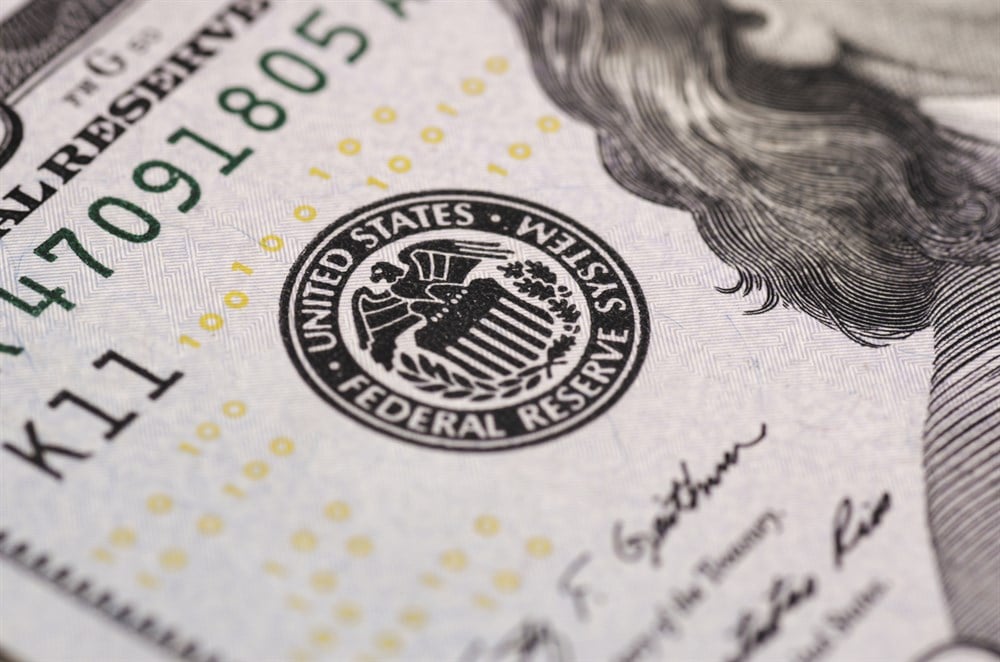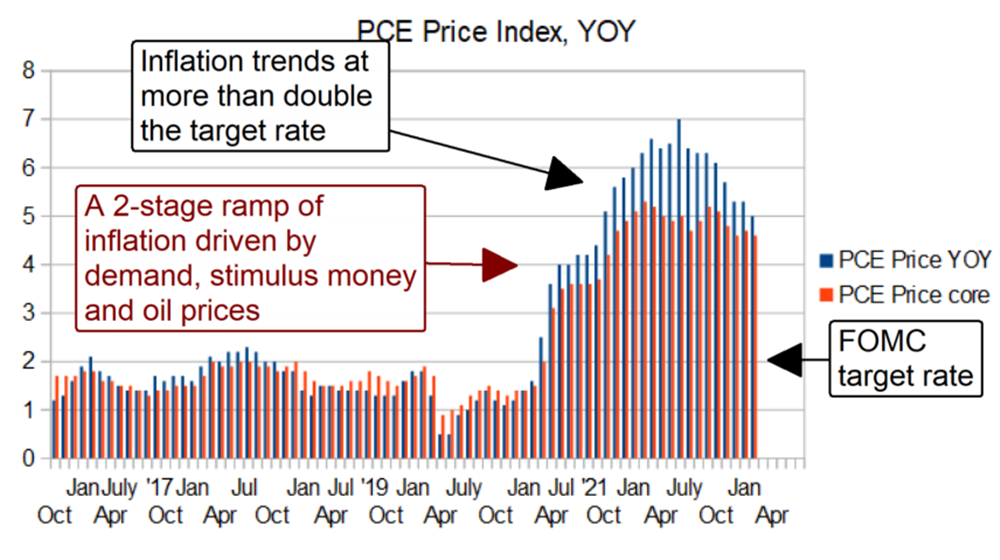
The Fed is slated to meet and release its April policy statement in 1 week, which will be a pivotal moment for the market. The committee has indicated another 25 basis point hike is coming but may be the last one this year. The risk for the market is multifaceted in that PCE data is due out this week, inflation is running hot regardless of recent cooling and oil prices have stabilized at levels not held in over a decade. If the Fed lets up on the pressure too soon, the economy will reinvigorate and drive another round of sustained inflation increases.
What Is The Market Pricing In For The Fed?
The CME’s FedWatch Tool is the best way to gauge the market's expectations. It is based on Fed Futures Funds Rates and shows a 71% chance the Fed will hike by 25 basis points next week. I show a low, single-digit chance for another hike in June and a growing possibility we’ll see the first cut this summer. Looking further out, the peak in rates may be hit by July. July shows a 50/50 chance for rates to hold steady or fall, with very little chance of rising from the expected 500 to 525 basis point range. This is evidence of the tenuous outlook; a single data point could sway the market either way, and there is also a risk for the Fed.
Pausing too soon will only lead to another round of inflation, as we have seen before. The Fed let off the pressure last fall by slowing the pace of hikes to 25 basis points, and inflation began to reaccelerate only a month later. If not for the banking crisis, there is a chance the Fed would have hiked by 50 basis points at the last meeting, and the market would be in a much different place now than it is. Because the Fed has been behind the curve with inflation from the beginning, it is unlikely they risk it accelerating.
The Policy Statement Will Be The Market-Moving Event
The Fed will likely hike by 25 basis points and indicate a pause, but the statement will be telling. The Fed is unlikely to use words like contained or sustained slowing regarding inflation and is more likely to sound cautionary and hawkish. The best-case scenario is the Fed will remain “data-driven,” and there is still the PCE price index to consider; it will impact the outlook and the statement.
The PCE Price Index is expected to be flat at 0.3% MOM at the headline and core level, with core inflation falling to 4.5% YOY. That’s down 0.1% from the previous month and will extend the cooling trend but is negligible in the bigger picture, leaving inflation well above the 2% target, and it doesn’t look like the trend is accelerating. Based on the 2-stage ramp of inflation in 2021 and 2022, there is a possibility the Fed will “contain” inflation to a lower but still high level that will need to be addressed in the future.
The Signs Of Economic Recession Are Growing
As big as the risk for the Fed in pausing rate hikes, there is a risk of rising too far, and there are signs of economic distress aside from the banking industry. Earnings reports from UPS (NYSE: UPS), Packaging Corporation of America (NYSE: PKG) and J.B. Hunt Transportation Services (NYSE: JBHT) are evidence of the systemic nature of slowing consumer demand. They are interrelated in the supply chain and reveal slowing demand that could lead to negative feedback loops in the economy. Slowing demand leads to less volume, less volume leads to deleveraging margin, and deleverage margin leads to cost-cutting and layoffs, which impact B2B demand and consumer health. In this scenario, once the recession begins, it could quickly gain momentum and take on a life of its own.







